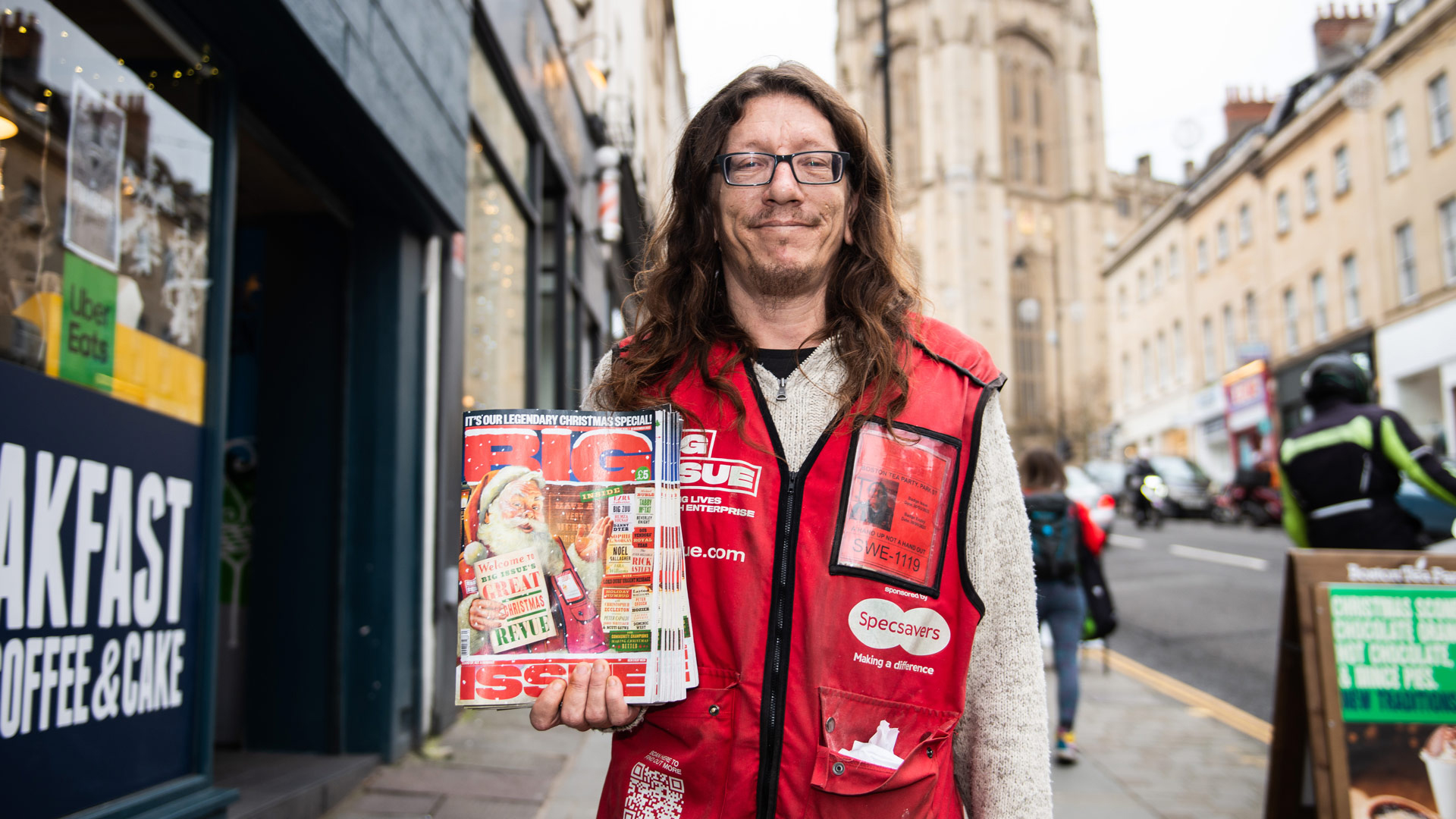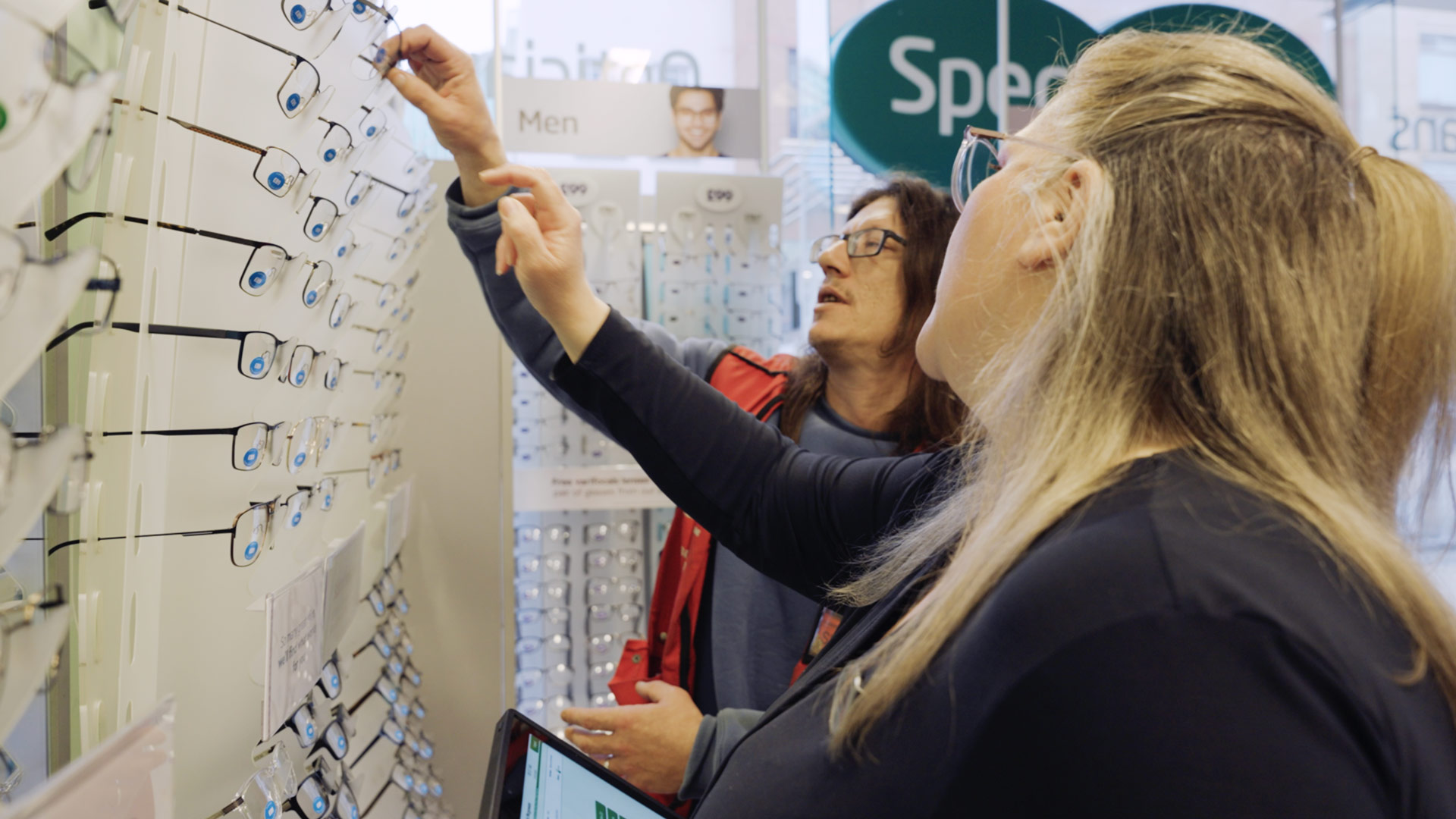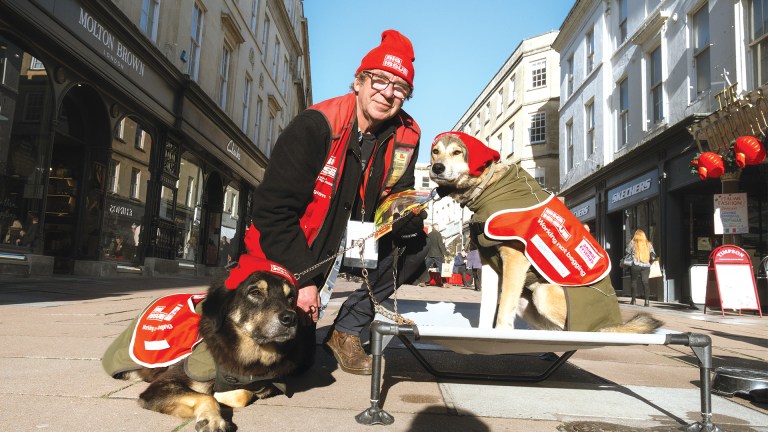“This is my happy place,” says Big Issue vendor Jack Osborne-Richardson, sitting on a bench and looking out over Bristol’s Berkeley Square, a small Georgian park that overlooks the city. Jack sells the Big Issue on nearby Park Street and returns to his favourite bench in the Square most days, to read, think, and feed his beloved crows, who all know him by sight and will literally eat out of his hand. “It’s amazing for my mental health,” he says. “It’s like regenerating sanity.”
If it wasn’t for his glasses, it’s a daily ritual that would be simply impossible for him. “My eyesight has always been terrible,” he says. “When I was younger, they didn’t realise my eyesight was bad and I was actually put in remedial classes. Then they did an IQ test and I scored off the charts and they realised the problem wasn’t my intelligence, it was my eyes. Since then, the first thing I’ve done every morning is put on my glasses, and the last thing I’ve done every night is take them off.”
Being able to read books is of fundamental importance to Jack. “There was literally a time in my life where I was feeling intensely suicidal,” he tells us, “and the only reason I didn’t act on it was because the last book in [Robert Jordan’s fantasy series] The Wheel of Time was due out. Literally being able to read has saved my life on occasion.”
Being able to see clearly is fundamental to quality of life. The problem is that glasses, or at least glasses with the correct prescription, aren’t always easy to come by if you’re living in poverty and always moving. Jack, who spent time sleeping rough before he sold the magazine, knows first-hand how scary and disorientating life on the streets can be if you have vision problems. “When you experience violence and things like that, they [your glasses] can get damaged which is terrifying — without being able to see you feel intensely vulnerable. If you don’t know who’s around you and who’s approaching you, then you’re not safe. Even if you’re not actually in danger, you still feel like you’re in danger. It’s a horrible feeling. You feel very vulnerable. Very alone.”

Eyesight is a critical aspect of well-being that we often take for granted. The ability to see clearly is intertwined with navigating daily challenges, recognising familiar faces, and engaging with the world meaningfully. Living without this clarity means not just a loss of detail in the world around you, but a profound impact on safety and mental health. The world becomes a place of unseen risks; every step outside is a venture into the unknown.
Specsavers’ partnership with the Big Issue provides a service for vendors that is both very simple and very profound. The partnership gives Big Issue vendors like Jack vouchers for full eye tests, including advanced eye health scans and glasses, at no cost. It also includes a full ear health check. These are simple things, but the benefits to someone’s quality of life are incalculable. This is especially significant because the free eye care available on the NHS can be difficult to secure for someone with a more transient lifestyle. It’s something Jack himself has found. “Eye care for me has often been very difficult to access,” he explains, “because I’ve never stayed in one place long enough.”









